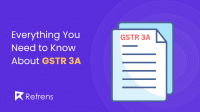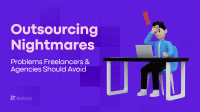Plagiarism is using someone’s words in your content without consent. It is an intellectual theft of someone’s thoughts, even if the law treats it as illegal and unethical.
Even though you may believe you understand plagiarism and wouldn’t engage in it, it might sometimes be so subtle to even notice. Knowing what plagiarism is by definition, and how can you prevent it as a writer is more critical than you may imagine.
No matter who you are writing for, it is crucial for you as a writer to provide high-quality work. Additionally, it’s crucial that the client knows precisely what they are obtaining when they perform a freelancing job.
It is crucial to conduct business ethically for both parties to prevent becoming entangled in court cases or having to apologize for something that could have been avoided.
Because editors may occasionally verify the originality of your work or they may not.
They might merely have faith in the originality of your work.
Furthermore, even if you believe your work is original, you can have accidentally plagiarised. You are unaware that you did it.
It’s important stuff.
You need to be able to submit with confidence when others are paying you for your thoughts so that you can avoid plagiarism.
Let’s acknowledge that mistakes are something that everyone does. And that when you act unethically, there is no moral dilemma because you acted with good conscience.
There may still be legal repercussions, though.
In this post, we have discussed various types of plagiarism, how they can hurt your content, and how to avoid plagiarism as a freelancer.
Check out the ultimate guide to becoming a freelancer.
Is Plagiarism Illegal?
Yes, of course! Plagiarism is illegal as it is the intellectual theft of someone’s ideas and words. However, if as a freelancer you are using someone’s sayings or words in your content with a reference to the author and acknowledging him too, it’s completely fine and appreciable.
Types Of Plagiarism
There are several types of plagiarism as a freelancer that you have to consider:
1. Direct plagiarism
It is also called intentional plagiarism, copying someone’s thoughts or words from their content without addressing them is known as direct plagiarism. It is the worst type of plagiarism and may cause many complications for you legally as well as disturb your SERP rankings.
2. Paraphrasing plagiarism
Paraphrasing is a technique used to rewrite the content by switching the words with synonyms and rephrasing sentence structures and phrases. Paraphrasing is used to avoid plagiarism although it is not a good way to produce content, you are still stealing someone’s intellectual property in an indirect way.
3. Accidental plagiarism
It is also a worst-case scenario, what if someone is unaware of plagiarism? As a part of the writer’s community, you are expected to abide by the rules and regulations of the community and you should also be aware of plagiarism norms. Copying someone’s content unintentionally and using it for yourself is also illegal and unethical.
How Plagiarism Is Harmful To Freelancers?
Plagiarism is harmful to content whether you did it intentionally or accidentally as a freelancer. There are multiple consequences you can face if you’re using plagiarized content. Some of the bad impacts of using plagiarized content are listed below.
1. Reducing SEO score
Plagiarism can cause your SERP ranking to drop drastically. Google uses AI and its algorithms to read the content on the internet. The spiders crawl the web pages and categorize the content over there according to the context intent. Google algorithms are smart enough to detect spammy or plagiarized content within seconds.
However, it is okay to brainstorm and take content ideas from other’s websites, but copy-pasting their entire content is totally rubbish. If the content is well-managed and plagiarism free Google will surely index and rank it.
Using plagiarized content may also cause an increase in your spam score because you are using someone’s content. More likely if the content you’re copying is against community guidelines or contains spammy links.
Check out the top SEO tools for content writers.
2. Rating drop
Your ratings may also drop as a negative impact of plagiarism if you’re having an E-commerce store or Affiliate website. Using copied images and plagiarized descriptions may cause a decrease in your ratings which ultimately cause your webpage to de-rank.
3. Losing Reputation
If you are having a well-reputed website with good traffic and high DA/DR, you won’t be compromising on content quality. Many writers nowadays use plagiarized content without bothering the website’s reputation.
Be aware of these kinds of writers because they will cause your website to lose its reputation within a few weeks. Do monitor your writers and check for plagiarism in the content they are providing regularly.
How To Avoid Plagiarism As A Freelancer?
Being a freelancer requires you to not only be aware that plagiarism could be a problem but also to comprehend what it is and how to avoid it.
It’s similar to how letting a child sit and scream after they hurt themselves while riding their bike won’t help the situation. Simply put, it increases awareness of the need. So let’s draw attention to the problem, learn from it, resolve the situation, and advance as a people.
Check out the 13 tools needed by a content writer.
1. Rewrite content in your words
Are you going to start writing an article from the beginning? The first step is to brainstorm your article topic and create a map in your mind. The second thing you need to do is search for that topic on Google, and read the content written by the top-ranking websites on that topic.
Things will start getting clear in your mind, now you can start outlining your article by setting the headings, you may also take help from multiple outline drawer tools available online. The word sequence of two individuals cannot be the same although the ideas can match.
2. Use plagiarism-checking tools
Before publishing any piece of content on your website, you should proofread and make sure it has a minimum similarity index. There are various online tools known as plagiarism checkers available for checking plagiarism online. A plagiarism checker online can help you whether you are a writer or publisher in checking for plagiarism in your content. For detecting image plagiarism, tools like lenso.ai can help you find duplicate visuals across the web and avoid such penalties.
A plagiarism checker works on the solid principles of AI, they scan the content and then compare it with the database. If the similarity index of your document is low, you’re good to go with it.
3. Start acknowledging
If you are using someone’s content, take it as a source and also give the due credit. Using someone’s writings or content in your document is acceptable if you are acknowledging him by adding references and citations. You can add the source information in the references section or the bibliography at the end of your research work. People usually appreciate adding references to content, they are more likely to trust your content.
Final words
We hope you understand that search engines as well as users prefer original content. It is no way to deceive search engines, their algorithms are now smart enough to detect similar content within seconds.
Plagiarism is illegal as well as unethical, consider a reader visiting your site to find something interesting but instead of finding something new he came across information that has already been published elsewhere.
A good reputation and high traffic are equally important for a website; you cannot compromise on them. We mentioned all the consequences and solutions above to save yourself from plagiarism as a freelancer.


















